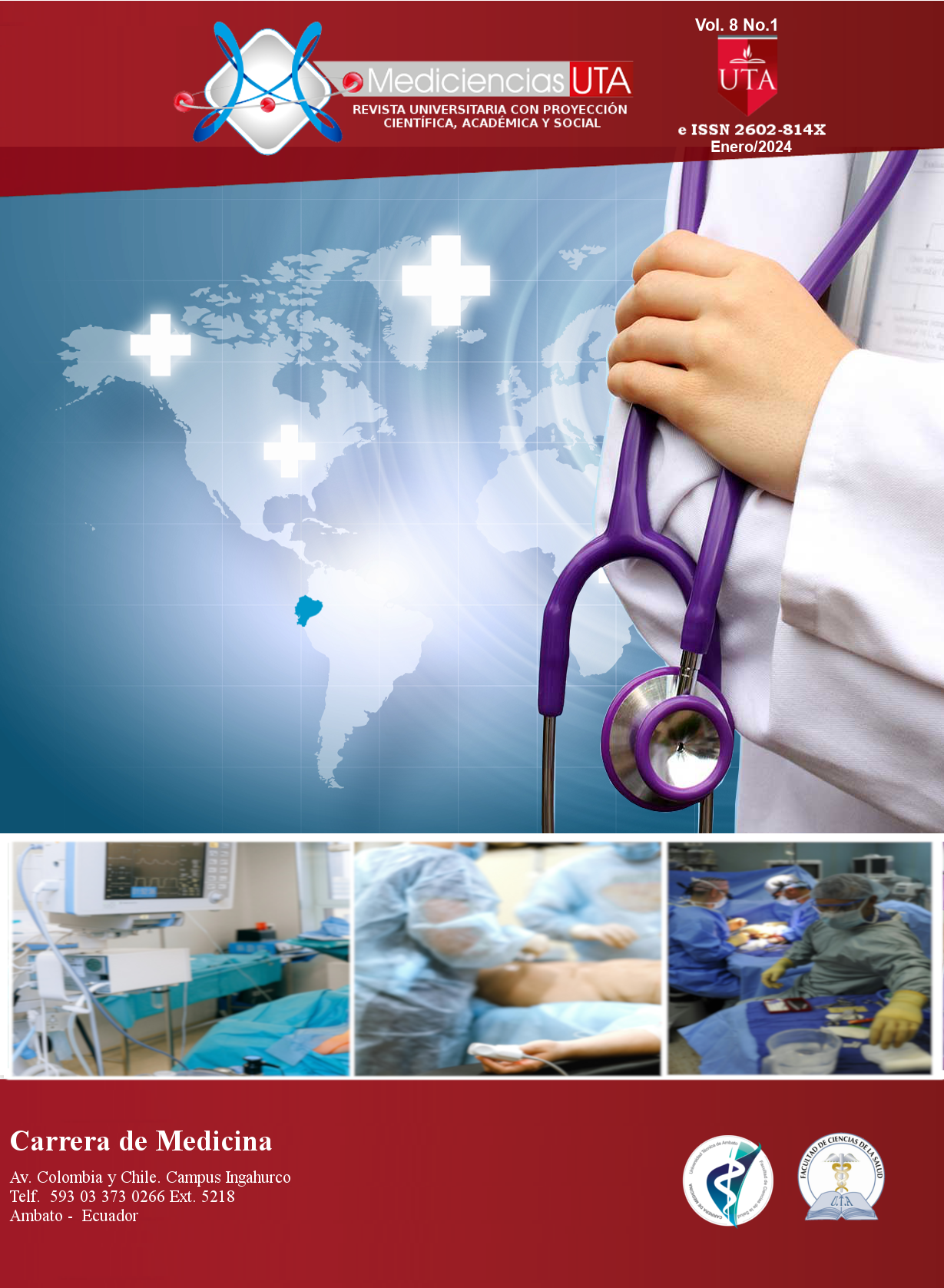Intraoperative and postoperative complications of bariatric surgery. A systematic review
Main Article Content
Abstract
Introduction: Obesity is a pathological state that influences the development of various diseases behaving as a risk factor by increasing the probability of developing diabetes, hypertension and atherosclerosis in people suffering from it. There is a variation in the response to treatment, so, there must be a customization in management with a multidisciplinary approach, which also includes the application of bariatric surgery, but it is vital to recognize the complications of this surgical procedure. Objective: Describe the types of trans operative or postoperative complications in bariatric surgery and the relationship between surgical approach, hospital time, morbidity and mortality. Materials and methods: Accurate and concise clear articles were collected from databases such as: the accreditation and quality improvement program for metabolic and bariatric surgery (MBSAQIP) from bariatric surgery centers in the United States and Canada, Canadian National Re-entry Register (NRD), Cochrane Database System, Pubmed, ScienceDirect, Mendeley, Academic Google, IntechOpen last viewed November 19, 2023. Results: Among the most observed complications in bariatric surgery are those related to the surgical act and the need for conversion for open surgery due to leakage of the anastomosis, among the respiratory complications, first is the pulmonary embolism. Deep vein thrombosis accounts for 6% of complications, which can be treated with anticoagulation or mechanical compression measures, the combination of mechanical and pharmacological prophylaxis with heparin can reduce venous thrombosis events in people undergoing bariatric surgery compared to mechanical prophylaxis alone, pneumonia and surgical site infections in addition to fistulas and leaks after bariatric surgery are 1 to 5%. Conclusions: The complications and mortality of bariatric surgery represent a relatively low percentage, however it is important to know in depth the most frequent complications in the long and short term, whereas serious complications, such as uncontrollable bleeding, lead to the need for conversion to open surgery, the reintervention of which is carried out for control by second intensity, as regards late complications, Highlight : gastroesophageal reflux disease and nutritional deficits, being the most observed and can affect various systems such as skeletal and neurological muscle, but that, can be managed with proper postoperative control.
Downloads
Article Details

This work is licensed under a Creative Commons Attribution-NonCommercial-ShareAlike 4.0 International License.



